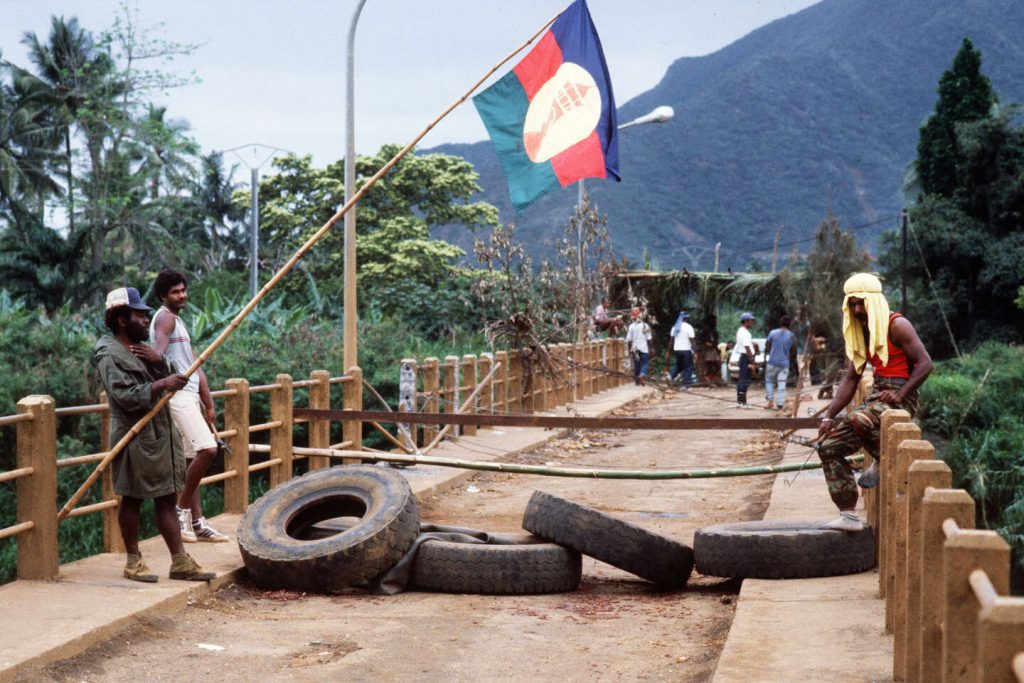In November 1984, militants of the Front de libération nationale Kanak socialiste (FLNKS) occupied a bridge and set up a barricade near Thio. They had recently smashed an urn symbolically to show their determination to boycott the territorial elections. The term “Kanaky” is being used prominently in New Caledonia, with residents shouting it in the streets and displaying it on signs. This term is used by Kanak people to refer to their territory, and it first appeared in Le Monde in September 1984 when the FLNKS coalition was formed to push for independence.
The FLNKS called for a boycott of the territorial elections in November 1984 and proclaimed the “provisional government of Kanaky” at the end of the month, led by Jean-Marie Tjibaou. The leader warned that their demand for independence would persist even if France decided to crush them militarily. The situation escalated, with ten indigenous militants from the Tiendanite tribe being shot dead by Europeans. This led to grief and mourning as their coffins arrived draped in the flag of Kanaky.
In December 1984, tensions persisted as some Europeans in Bourail displayed signs declaring “Kanaky not an option, we stay.” The mayor was exhausted, and some Europeans were ready to confront hostile tribes. However, there were instances of reconciliation, such as when the French Minister of the Interior visited the chief of the Petit-Couli tribe and was greeted with a chant of “Long live France, long live Sarraméa, long live Petit-Couli and… long live Kanaky!” In Hienghène, Jean-Marie Tjibaou presented a visitor with an independence flag, affirming both “Long live France! Long live Kanaky!” in a symbolic gesture.
The issues in New Caledonia continued to evolve, with ongoing tensions between indigenous Kanak people and European settlers. The goal of independence remained a central focus for the FLNKS, with continued resistance against French authority. The conflict highlighted the complex history and power dynamics within New Caledonia, showcasing the struggles for self-determination and sovereignty. Efforts towards reconciliation and understanding were also evident, as different communities navigated their shared history and future pathways.
Despite the challenges and conflicts, the people of New Caledonia persisted in their fight for self-determination and sovereignty. The term “Kanaky” symbolized this struggle and became a rallying cry for independence. The complex relationship between Kanak people and European settlers continued to be at the forefront of political and social discussions in New Caledonia. The legacy of these events continues to shape the region’s history and ongoing quest for autonomy and recognition.


